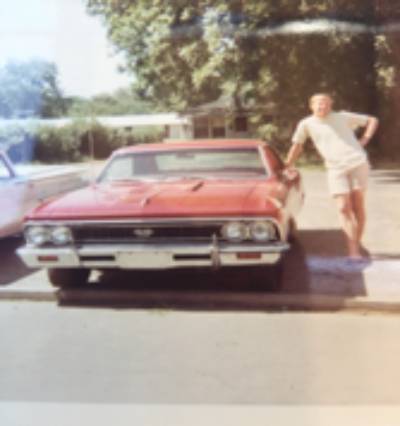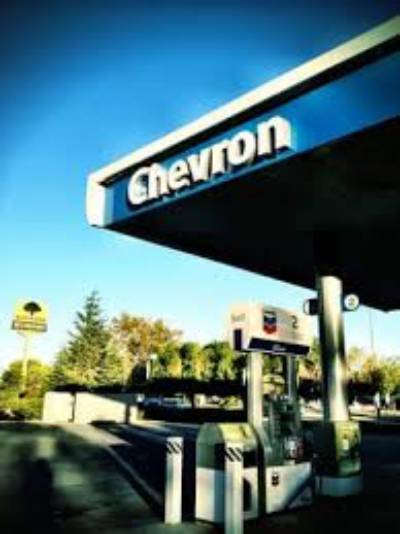
by Dan Rott
“Mom, hurry. See if Dad has any of those knee-high white socks. I can’t find any that are long enough. I’ve got to get to work by 2:00 p.m.,” I yelled in a panic.
"Okay, hold your horses. I’ll look again.” Mom went back into her and Dad’s bedroom and finally came out with a pair of white socks that Dad wore with Bermuda shorts. They were longer than anything I had in the plain wood drawer in my bedroom.
I needed to get to my summer job working at a Standard Gas Station on the freeway at the Coffee Tree side of Interstate 80 near Vacaville. On a three-day week-end like the Fourth of July, Friday afternoon promised to be crazy. This was my second summer working at the gas station, and I was prepared for anything. I had to get there on time, and I was running late.
We wore a uniform consisting of blue pants, white shirt with a Chevron logo on the right side of the chest, and a folding blue cap similar to those worn by off duty American Army soldiers during WWll. Special black shoes with thick rubber soles that resisted petroleum product damage and slippage on concrete were also required. Standard Stations furnished the uniforms so that all station employees were dressed exactly the same. They were delivered weekly to the station in a sealed plastic wrap with our names smartly labeled for easy identification. Our dirty uniforms were collected by the same delivery driver and taken to be cleaned and the cycle continued exactly the same each week.
“Mom, this uniform is all goofed up and doesn’t fit. The pants are too short or something and my socks don’t cover my legs,” I complained before leaving home. At six foot, five inches tall, I was too tall to borrow or trade with anyone else.
“You’ll make due this one time. Use dad’s socks. Now scat.” I ran to my car. The job helped me maintain my car, which my dad bought me when I passed my sophomore year of college. He was very proud and also grateful because he didn’t want me to get drafted and sent to Vietnam.
“Hey, where’s the flood?” yelled Allan Haight after I arrived at the station. I joined many of my Dixon friends who were going to college and working for Standard Stations in 1968. These were union jobs paying $3.65 per hour for a straight eight-hour shift. Lunches were taken if time allowed. I made over $3,000 a summer living at home so that almost everything I made was saved. Tuition was $99 a semester, twice a year, and my room cost $40 per month. This was a pretty fair deal, I thought. My parents helped out when needed.
Other silly remarks included asking if I was trying out for a cornfield scarecrow.

I rolled up my sleeves as they too were a little short. Others joined in mocking me for looking “goofy” in the poorly fitting uniform. “Hey, Mortimer Snerd, where’s Charlie McCarthy?” snorted Ricky Sequeira as he gave a high pitch laugh walking to deliver gas to an arriving customer. Other silly remarks included asking if I was trying out for a cornfield scarecrow.
The cost of gas hovered between 24 cents to 34 cents a gallon during the summers I worked. At these gas stations, no one was permitted to stand around with nothing to do. If there was only one car getting gas, it was not unusual to have three employees pumping gas, washing windows, checking air pressure, and showing the customer the dip stick so they knew the status of oil in the engine. Customers loved the attention.
Since this was July 4th, a huge holiday getaway, the station was central valley hot and busy as a disturbed ant hill. A few customers from the Bay Area refused to roll down their windows more than a couple of centimeters during summer months, just enough to push or punch a credit card out the window, while keeping their air conditioning on. We needed to get on our hands and knees to retrieve the cards to run through the station’s credit card machine.
“Good afternoon, Ma’am. Fill your tank today?’ I said this so often on busy days that I dreamed it over and over as I tried to get to sleep at night. I didn’t mind these busy days when there was usually only time to get a coke or bottle of water. I missed lunches and often didn’t stop moving from the start to finish of my shift. I made more money than other people my age who didn’t work union jobs which made the hard work worth it. I always thought it better to be busy than bored. “Stop in and see us again.” Occasionally Standard Oil Regional Managers stopped by without introducing themselves and monitored our efforts and interaction with customers. If we left our hat at home or were not repeating the accepted greeting and closing, we might be fired or blackballed for the next summer. These managers hammered the theme that we sold service.
At the end of a grueling day with temperature that flirted with 100 degrees, my shift ended. The new shift that worked from 10:00p.m. to 6:00a.m. arrived. As I turned to walk slowly back to my car, I noticed David Bonillo get out of his car. David was five foot, seven inches tall and a pudgy 200 pounds. His uniform pant legs were rolled up at least six to eight rolls. The arm length of his white shirt hung loosely and covered his hands.
We had fun and worked hard, but it was worth it. We had a sense of self-worth and accomplishment. We wanted to go to college, and we earned most of our expenses.
I immediately shot a glance at Allan and Ricky, who were near their cars rolling on the ground in laughter. Earlier in the week, they had intercepted the uniform shipment and changed name tags for David and my uniform bundle with an artful slice of an exacto-knife. They then carefully resealed it with clear tape.
We had fun and worked hard, but it was worth it. We had a sense of self-worth and accomplishment. We wanted to go to college, and we earned most of our expenses. Today, the average student graduates with a $30,000 debt hanging like a dark cloud over their start into the work force. A recent article indicated that half of all college students eat one to two meals a day and go to school hungry. I can’t say our experiences made us better people, but I am convinced that we started our adult life with a bit more work experience and more optimistic than today’s generations.
